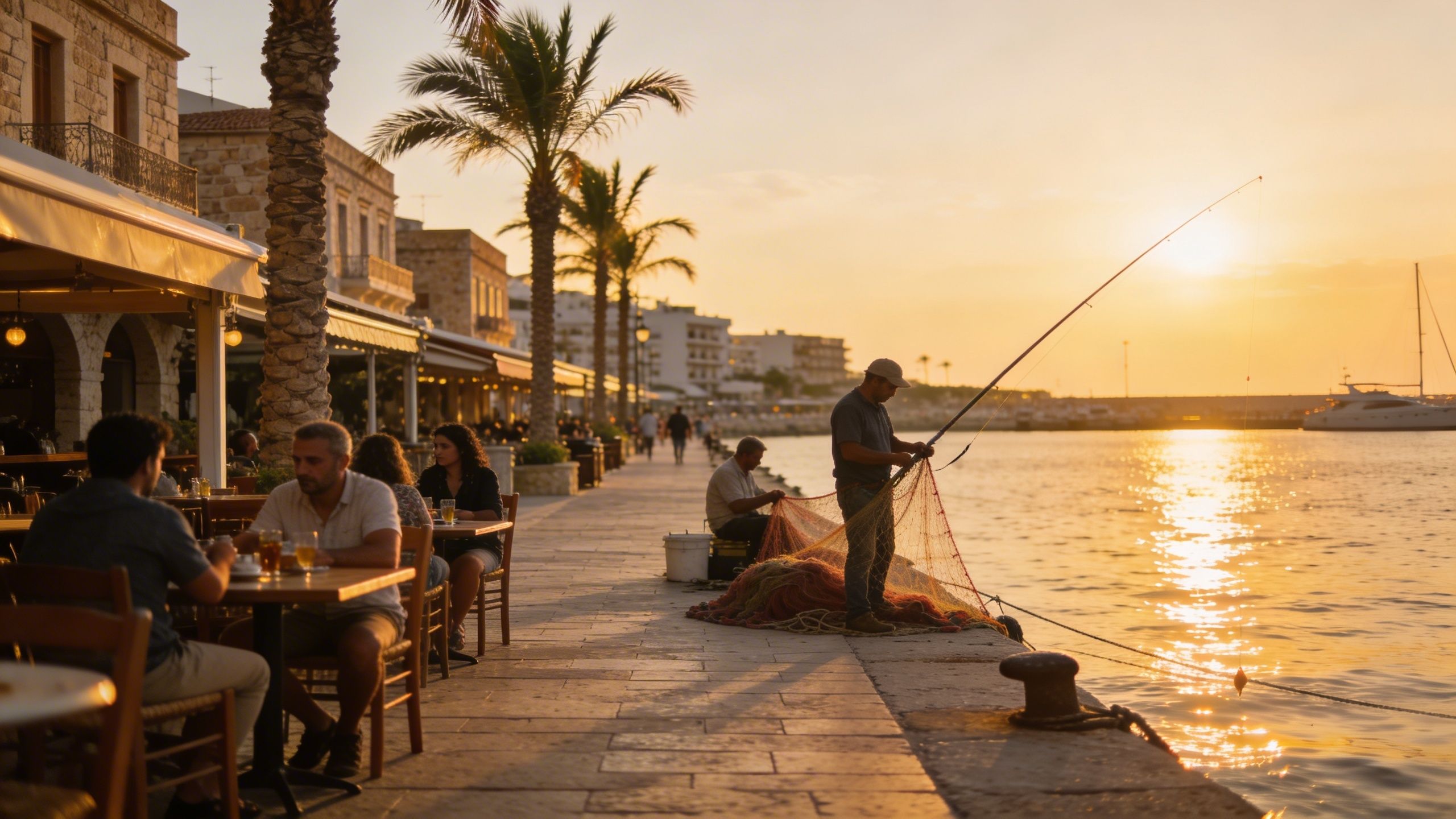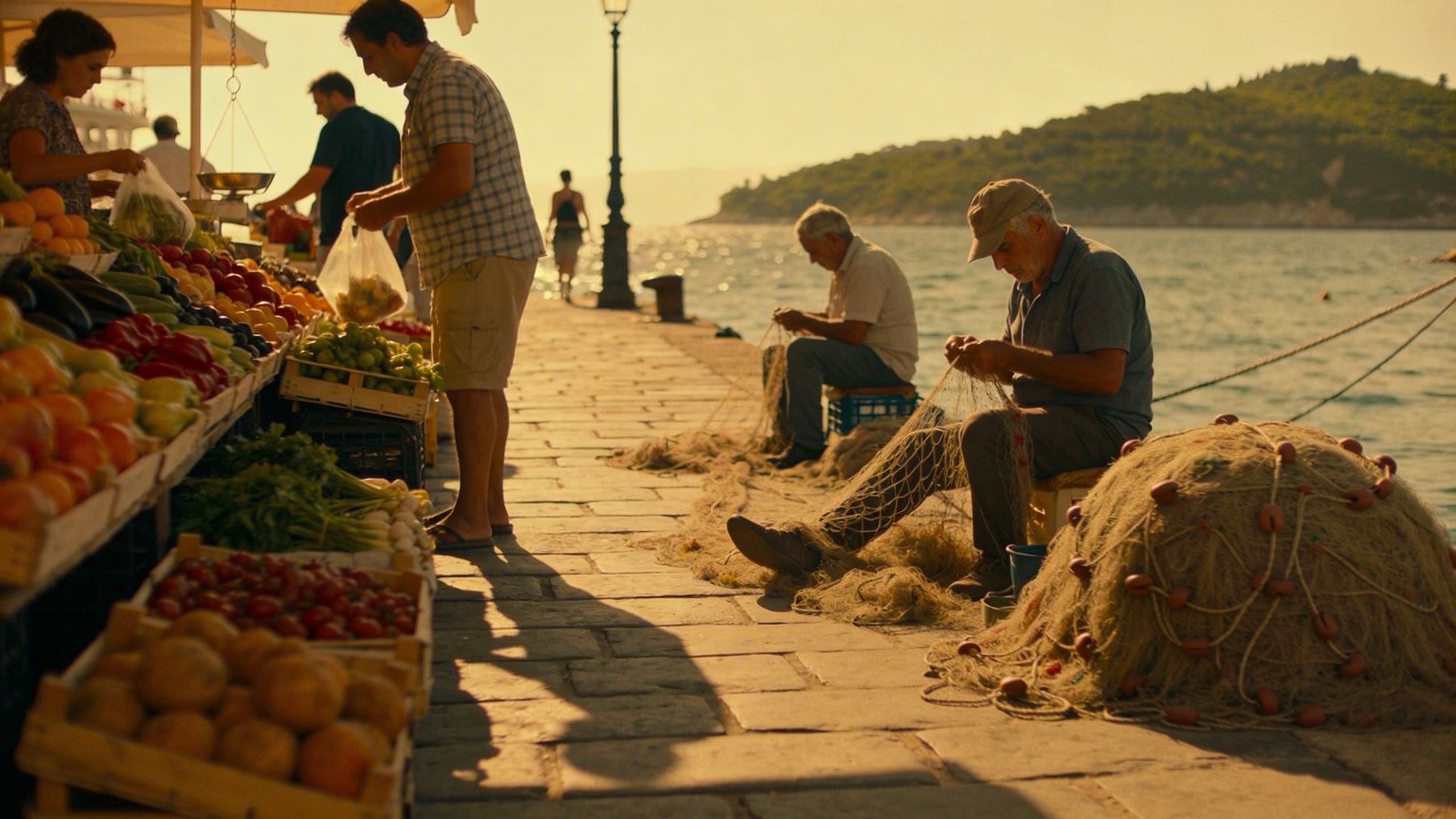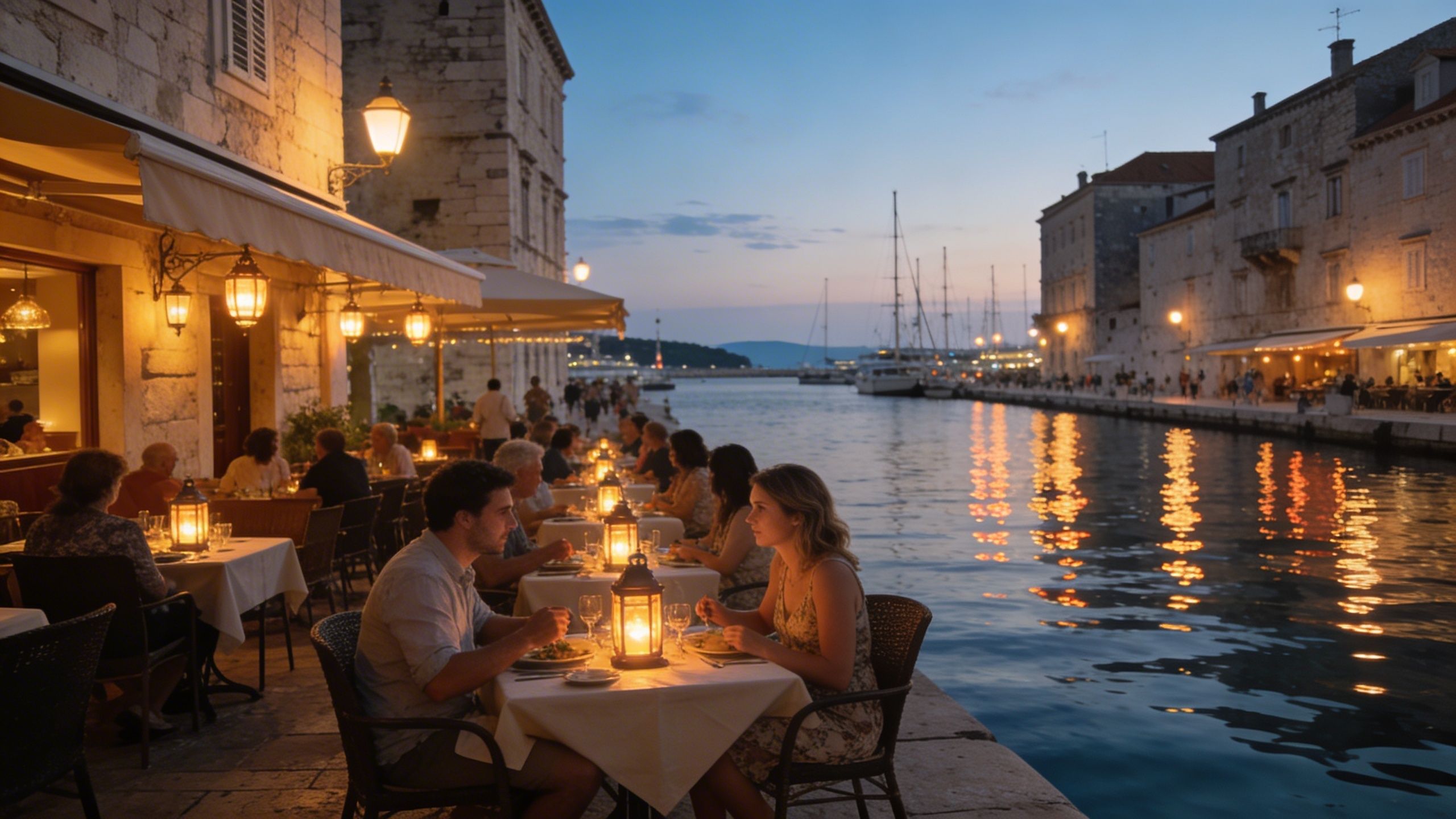Croatia: Protect the Life, Not Just the House
Fall for Croatia’s daily rhythms — but pair the romance with coastal, heritage and foreign‑buyer protections backed by Croatian legal and market sources.
Imagine stepping out at dawn onto Zagrebačka cesta, a café cup warming your hands while market stalls along Dolac hiss with the morning's first fish and produce. Picture a terrace in Split where the Adriatic is a constant companion, or a stone lane in Rovinj where shutters open to the scent of baking bread. Croatia rewards slow mornings, well-made coffee, and evenings that stretch along the water; yet the practicalities of owning a home here — permissions, insurance for a coast that sometimes storms, and local legal customs — quietly shape which life you can build. According to recent market analysis, international buyers should pair the romance of place with a precise plan for protection and stewardship.
Living the Croatian life: rhythms that matter
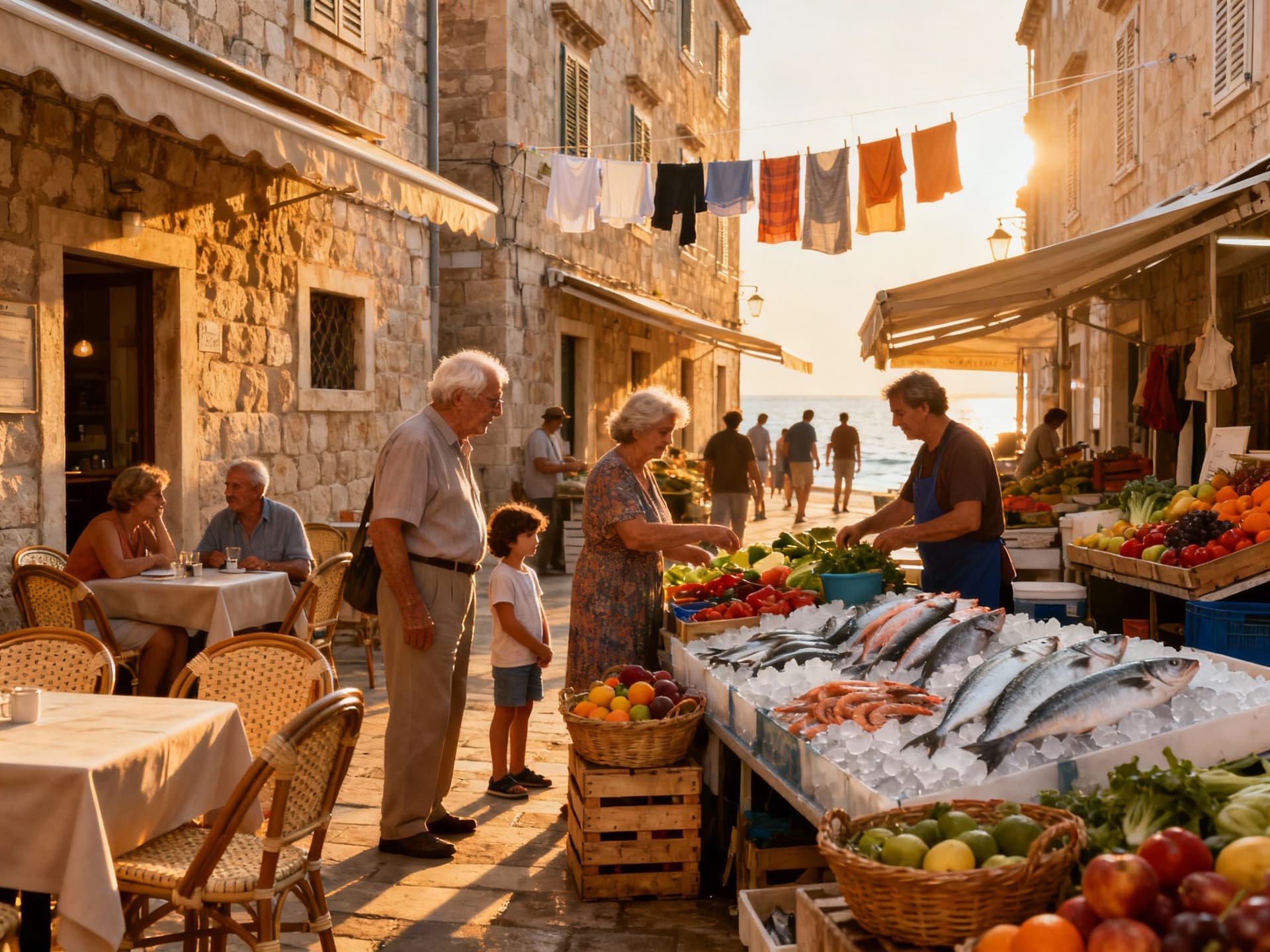
Croatia's daily rhythms are regional. Zagreb hums with weekday industry and late‑night bistros; along the Dalmatian coast, life orients itself around the sea, seasonal tourism and a tactile relationship with stone houses and tiled roofs. The islands keep an even slower, restorative pace where neighbours still trade oranges and advice. For a buyer, these rhythms determine the practicalities of ownership: the difference between a year‑round neighbourhood like Split's Varoš and a holiday-centred place such as Hvar's Ports is not merely atmosphere but occupancy patterns, rental potential, and the type of insurance and maintenance you will need.
Zagreb, Split, Dubrovnik — distinct neighbourhood characters
In Zagreb, streets like Ilica and the Gradec plateau offer classical townhouses with coffered ceilings and civic scale; their living is urban and year‑round, which favours traditional buildings insurance and contents cover. In Split, Varoš and Meje are stone‑walled neighbourhoods where a terrace view of the Riva is as prized as sound structural surveys; here, storm‑related and salt‑corrosion considerations change maintenance budgets. Dubrovnik's Old Town is a living museum — ownership there often brings stricter heritage controls and the need for specialist policies that account for restoration standards and the higher costs of sympathetic repairs.
Food, markets and the social fabric that protects value
A Saturday at Dolac market in Zagreb or the fish market by Split's harbour is not mere leisure; it is how communities bind themselves. Properties within walking distance of these everyday anchors — cafés such as Cogito or Konoba Mate — retain steady desirability. That proximity also affects risk profiles: neighbourhoods with active communities tend to deter vandalism and neglect, which insurers note when assessing premiums and claims histories.
- Lifestyle highlights to consider before you buy
- Walkable markets (Dolac, Pazar Split) and daily cafés that signal neighbourhood life
- Coastal terraces with salt‑exposure: demand specialist corrosion and storm cover
- Historic centre properties that require heritage‑sensitive insurance and restoration clauses
- Island properties that need winterisation plans and longer‑term maintenance budgeting
Making the move: practical protections that preserve the life you imagine
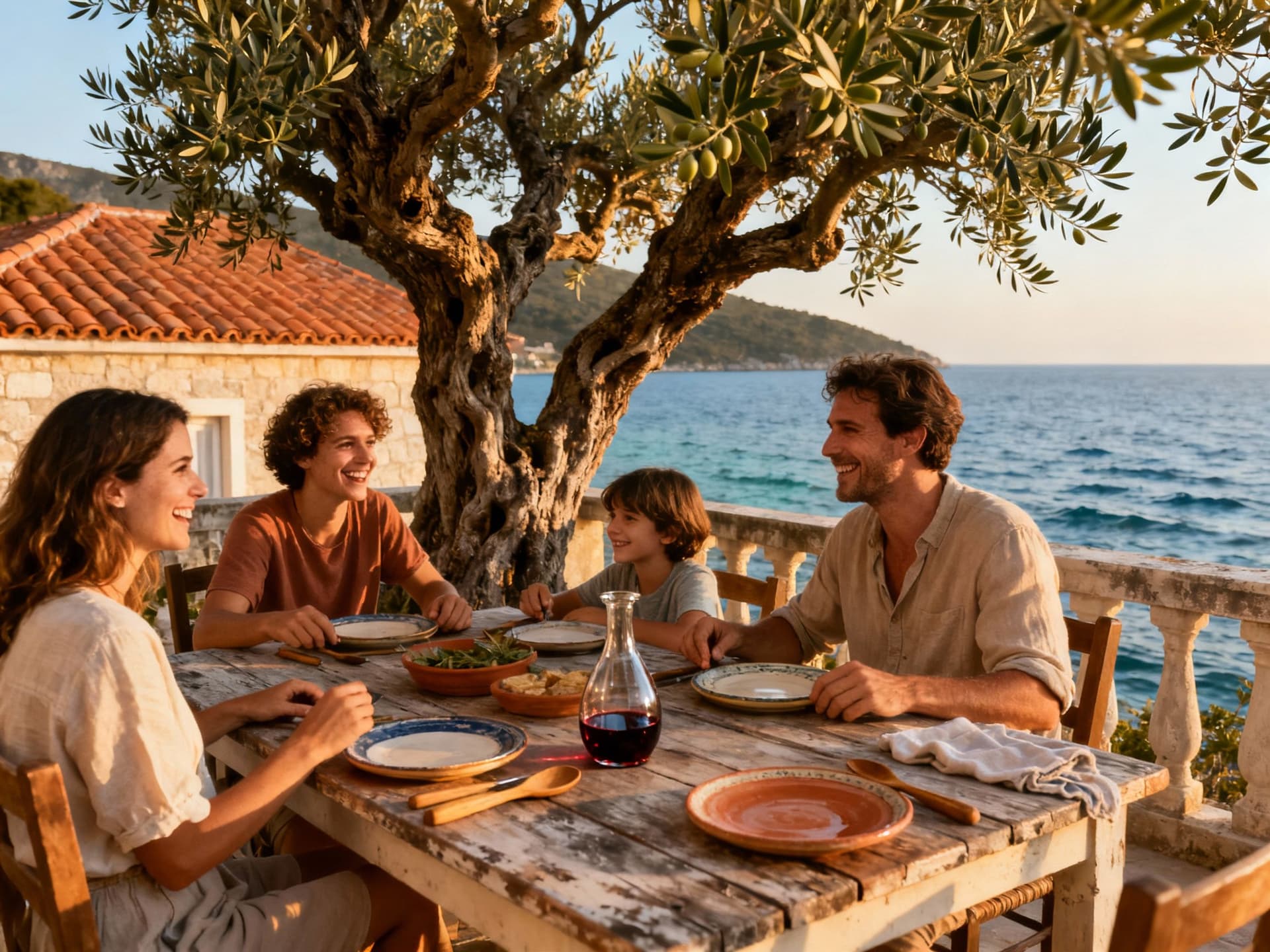
The paperwork behind the dream matters. EU and EEA citizens can generally purchase without special consent; third‑country nationals commonly need Ministry of Justice approval under reciprocity rules. That administrative step, and its associated timelines, influence contract terms, escrow arrangements and the choice to buy through a local company — each decision carries implications for how you insure and protect your asset. The Croatian Ministry of Foreign Affairs and legal advisers provide clear procedural outlines for these stages.
Property types and the policies they require
A stone townhouse in Dubrovnik will demand different protections than a new build in Zagreb. For heritage properties, seek insurers who will cover restoration to original standards rather than simple replacement. For coastal villas, confirm cover for storm surge, roof damage and salt corrosion; for island houses, insist on policies that factor in access constraints and higher repair costs. Local agencies and lawyers can introduce insurers accustomed to Croatian building typologies and the realities of coastal weather.
How local experts convert lifestyle briefs into secure purchases
A seasoned local agent is less a salesperson and more a translator: they map your morning routines and social priorities to neighborhoods, highlight hidden maintenance costs, and recommend vetted lawyers and insurers. Expect them to advise on an OIB number, the Ministry approval timeline if you are a non‑EU buyer, and appropriate escrow arrangements. When done well, agency counsel both preserves the life you imagine and reduces the chance of post‑purchase surprises.
- Practical steps that blend lifestyle and protection
- Define the life you want (year‑round residency, rental income, island retreat) and map it to neighbourhoods.
- Commission a structural and moisture survey that addresses coastal salt and seismic risk.
- Obtain written insurance quotes specifying coverage for storm surge, flood, and restoration to heritage standards.
- Use escrow or a notary‑held deposit while Ministry approvals or bank financing clear.
Insider knowledge: what expats wish they'd known before settling in
Expats frequently tell a similar story: they fell for a street, then discovered seasonal realities — a coastal lane lively in July becomes quiet and in need of winter‑proofing in November. Market data shows transaction volumes and financing patterns shifting, which matters for timing and insurance cost. Being present for more than one season, or working with an agent who has, remains the single best safeguard against a lifestyle mismatch.
Language, community and the quiet protections of belonging
Croatian neighbours value reciprocal courtesy: small acts — help with rubbish, watering plants — build goodwill and practical protection. Learning basic Croatian greetings and market phrases opens doors; a local contact makes claim processes and builders' quotes simpler. For insurance, demonstrating local occupancy or engagement can sometimes improve terms or claims responsiveness.
Long‑term stewardship: how to keep value across generations
Policy shifts — for example, debates about property taxation and incentives for long leases — can affect carrying costs and the prudence of short‑term holiday letting. Where legislation encourages long lets or taxes empty flats, properties designed for generational living and local integration often fare better. Protecting value means choosing materials and restoration approaches that respect both local conservation rules and future resale markets.
- Red flags and small print that can cost you later
- Missing receipts for past restorative work — insurers may refuse claims without documented materials and methods.
- No survey addressing salt corrosion on coastal metalwork and joins.
- Assuming short‑term rental returns without confirming local tax and licensing rules.
- Relying on verbal assurances about boundary lines or utility access — always verify in land registry.
Conclusion: Croatia rewards patience and precision. The sensory pleasures — early markets, sea glass light at dusk, neighbourhoods that remember names — are the reason buyers come. Protecting those pleasures requires local counsel, surveys that address coastal and heritage specifics, and insurance that looks beyond standard fire and theft. Begin with a clear brief for your life here, then ask your agent and lawyer for the precise protections that make that life durable.
Relocating from London to Mallorca in 2014, I guide UK buyers through cross-border investment and tax considerations. I specialise in provenance, design integrity, and long-term value.
